The Africa Soil Health and Fertiliser Summit (AFSH)
03/06/2024
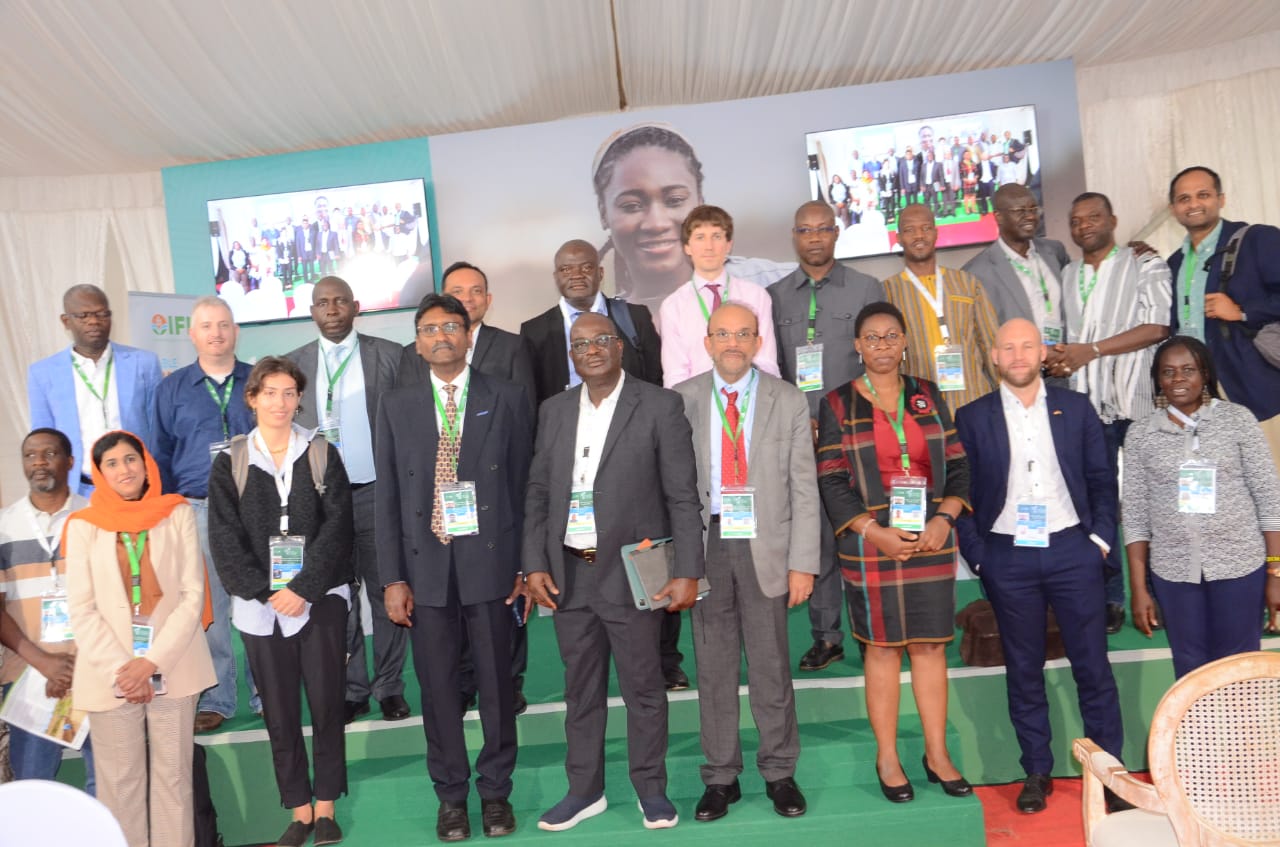
The vibrant city of Nairobi, Kenya played host to the Africa Soil Health and Fertiliser Summit (AFSH) from 7 – 9 May 2024. This a landmark event, organised by the African Union, was the second event of this scale following the Abuja Declaration in 2006. The aim of the declaration was to increase nitrogen fertiliser application from 8 kg N ha-1 to 50 kg N ha-1 , a target that has not been achieved in many countries, hence the need to revive it with the Nairobi Declaration following the AFSH. The vision of AFSH is to create self-sufficiency within Africa to meet its own food security needs and to serve as a breadbasket for the globe, through effective use of fertiliser whilst maintaining soil health. More than 20 African Presidents and many more Vice Presidents representing all African nations in the continent were in attendance – there are not so many events celebrating soils at such as scale! It was fantastic to be there and even better with ECRs such as Dr Parveen Rupani and Dr Patrick McKenna. The trip to Nairobi would not have been possible without funding from the Public Engagement Participatory Research Seed Fund.
Our side event ‘Mapping Organic Feedstocks in Africa: A Step Towards Nature-Positive Fertiliser Production’ was one of 26 selected after fierce competition. Our event took place on the afternoon of 7 May 2024, co-hosted with the International Fertiliser Development Centre (IFDC). Approximately 70 delegates attended from the farming community, industry, policy makers and researchers. A survey using Mentimeter (online survey tool) investigated the sources of organic feedstock required to formulate organo-mineral fertilisers and this same tool enabled immediate discussion with the respondents.
Led by Professor Ruben Sakrabani, our event aimed to shed light on a new approach to fertiliser production that can assist African farmers. The session commenced with an enlightening talk by Professor Sakrabani on the potential of organo-mineral fertilisers (OMF), a novel class of fertilisers which blends mineral and organic feedstocks. His insights illuminated the transformative impact that OMF could have on agricultural practices in Africa, offering a sustainable solution that enhances soil health and crop productivity. The main objective of the event was to establish a communication network channel between farmers to facilitate the exchange of insights and experiences related to OMF adaptation. The topic addressed one of the central issues discussed at the summit: combining the provision of crop nutrients with the maintenance of soil health.
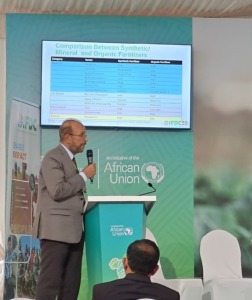
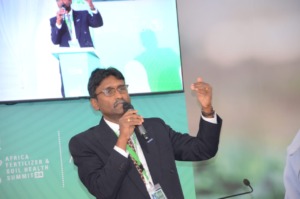
Following Professor Sakrabani’s engaging discourse, Dr. Upendra Singh from the IFDC delivered a keynote address. Dr. Singh’s address focused on the imperative of developing OMFs for sustainable global nutrient production and management. With a wealth of knowledge and experience, he delivered a core message on the critical role that OMF could play in addressing the dual challenges of food security and environmental sustainability on a global scale. Dr. Upendra elaborated the OMF success stories in USA, India and Brazil. This included interventions to enable OMF applications such as improvement in financing and investment, affordable organic and inorganic fertiliser, increased efficiency, resilience and sustainable soil management.
Central to our event was an interactive session that provided a platform for attendees to delve deeper into the intricacies of OMF production. Dr. Rupani and Dr. McKenna engaged actively with the participants using Mentimeter to facilitate real-time feedback and engagement from participants. Through interactive polls and surveys, we gleaned valuable insights that will inform future initiatives and collaborations in the realm of sustainable agriculture. The event was attending by 35 people and 34 joined us online. Our survey indicated that most participants were highly educated (one third held PhDs), but there was representation down to high school level. Cereals were the main crops of interest for those looking to learn about OMF, and mineral fertiliser was the main source of crop nutrients in the country of most participants, with compost, crop residues and cow manure coming in after this. Reported application rates of N fertilizer were 88kg ha for cereals, 46kg ha for oil crops, 100kg ha for vegetables and 78kg ha for perennial tree crops. Prohibitive cost was the most important factor restricting the use of fertilizer in the participants country, and limited access was the second factor. These findings agree with the literature on this topic, which has consistently found that farmers in Sub-Saharan Africa often lack the financial resources and market access to obtain quality fertiliser. 95% of participants reported that farmers in their country would be interested in trialling OMF. Potential feedstocks for OMF vary broadly but this survey indicated livestock manure is the most significant source, followed by crop residues and market waste. Circular economy products such as sewage sludge and brewery waste were not found to be useful potential sources of feedstock for OMF production.
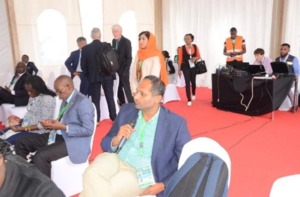
Half of participants believed potential OMF feedstocks were located within rural areas, whilst 25% believed they were in urban areas and the remaining 25% in peri-urban areas. Some logistical challenges were highlighted by the findings that one third of participants believed OMF feedstocks were located >100km from urban areas. Synthesis of OMF must be facilitated by easy access of manufacturing centres to feedstocks, and these results indicate OMF production may be challenging in some areas given the significant disarticulation between urban areas producing fertiliser, and rural areas producing waste products for potential feedstocks. Almost every participant (~95 %) also indicated they would not be willing to pay the same amount for an OMF as for a conventional fertiliser, likely highlighting concerns around quality and nutrient content which must be addressed by OMF producers. Interest in OMF despite this however remained high as 80% of participants reported that they would be interested in doing OMF research in their country. As we reflect on the success of our side event, we are optimistic that OMF can play a role in achieving soil health through providing vital nutrients and recycling waste products in Africa. However, this hinges on innovation and garnering farmers’ satisfaction and trust in adopting this new product. We feel this is just the start of a long journey but armed with knowledge, innovation, and a shared commitment to sustainability, we stand poised to chart a course towards a greener, more resilient agricultural future in Africa.
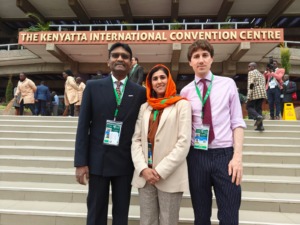
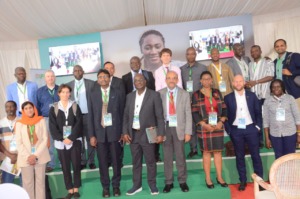
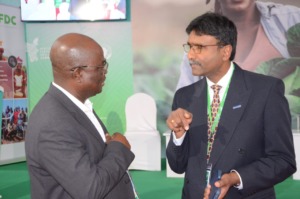
Categories & Tags:
Leave a comment on this post:
You might also like…
Introducing… Bloomberg Trade Flows
Are you interested in world trade flows? Would it be useful to know which nations are your country's major trading partners? If so, the Bloomberg terminal has a rather nifty function where you can view ...
Cranfield alumni voyage to the International Space Station
Seeing our alumni reach the International Space Station (ISS) has a ripple effect that extends far beyond the space sector. For school students questioning whether science is “for them”, for undergraduates weighing their next ...
From classroom to cockpit: What’s next after Cranfield
The Air Transport Management MSc isn’t just about learning theory — it’s about preparing for a career in the aviation industry. Adit shares his dream job, insights from classmates, and advice for prospective students. ...
Setting up a shared group folder in a reference manager
Many of our students are now busy working on their group projects. One easy way to share references amongst a group is to set up group folders in a reference manager like Mendeley or Zotero. ...
Company codes – CUSIP, SEDOL, ISIN…. What do they mean and how can you use them in our Library resources?
As you use our many finance resources, you will probably notice unique company identifiers which may be codes or symbols. It is worth spending some time getting to know what these are and which resources ...
Supporting careers in defence through specialist education
As a materials engineer by background, I have always been drawn to fields where technical expertise directly shapes real‑world outcomes. Few sectors exemplify this better than defence. Engineering careers in defence sit at the ...

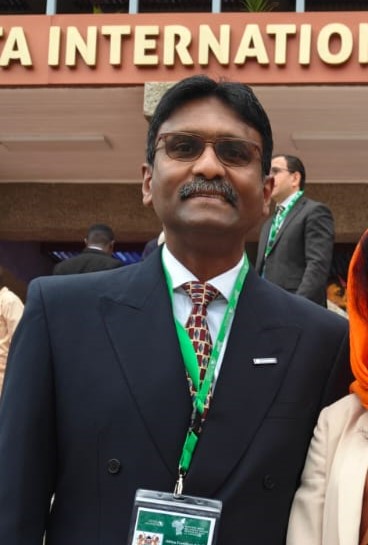






Comments are closed.